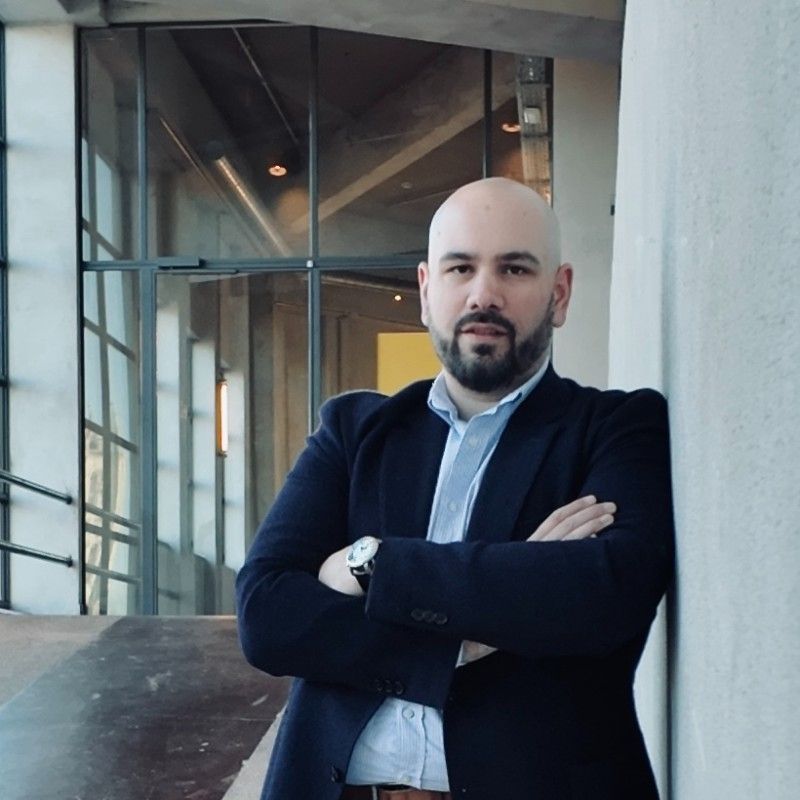eSave: AI-Powered Energy Optimisation for Sustainable Hospitals
“Hospitals consume four times more energy than the largest commercial buildings in urban areas. The healthcare sector presents an enormous opportunity to drive change where it’s needed most.”
As a spin-off from imec and Ghent University, eSave applies AI-driven technology to optimise thermal energy consumption in buildings. Their smart system continuously analyses real-time data, facilitating easy energy-saving decisions while improving occupant comfort.
Now, the company is taking its expertise into the healthcare sector through the Healthcare Challenge. We sat down with Andrei Neagu to discuss eSave’s ambitions, the challenges of innovating in healthcare, and the role of circular innovation in energy management.
What inspired you to create eSave?
My background is rooted in IoT technology, and I've always aspired to create something that positively impacts the environment and society. My co-founder and I share this vision: to harness technology in building a sustainable future.
We identified an opportunity in energy management for large buildings. Numerous outdated systems operate inefficiently, consuming excessive energy. By integrating AI technology, we saw an opportunity to transform these systems, making them more energy-efficient and sustainable
How does eSave contribute to circularity?
We didn’t set out with ‘circular economy’ in mind, but it turns out we’ve been working within those principles all along. Our approach focuses on making existing systems more efficient, extending their lifespan by refurbishing and reusing components rather than replacing them.
Instead of installing entirely new systems, our technology integrates with what’s already there, reducing waste and unnecessary hardware investments. This way, buildings consume less energy, but also generate less material waste - a key principle of circular innovation.
What led eSave to focus on hospitals and care facilities?
If you look at energy consumption per sector, healthcare is one of the biggest consumers. Hospitals use four times more energy than large commercial buildings, and the complexity of their infrastructure makes it even harder to optimise energy use.
At the same time, the sector is highly regulated and relatively conservative when it comes to adopting new technologies. That’s why the Healthcare Challenge was the perfect opportunity for us. It allows us to work directly with hospitals, understand their needs, and prove that our AI-driven energy solutions can make a measurable difference.
What do you hope to achieve through the Challenge?
For us, this is about more than just business development. It’s about understanding how hospitals operate and how they make decisions regarding energy management. It’s a highly structured environment with multiple stakeholders, which makes adoption more complex.
As part of the Healthcare Challenge, we’re conducting free energy audits in hospitals through the Living Labs. This helps us measure potential savings, but also gives hospitals a no-risk opportunity to see what’s possible with our technology. Our ultimate goal is to demonstrate that AI-driven energy optimisation is not only feasible but also a logical step for any hospital looking to reduce costs and emissions.
What does success look like for eSave?
In the short term, success would mean securing full-scale energy optimisation projects with hospitals and care facilities. But even if we don’t immediately secure contracts, this challenge is still a win for us because it helps us determine if healthcare is the right focus for our growth.
Looking further ahead, our ambition is to scale internationally. We’re already established in Belgium and are now expanding into France, the Netherlands, and the UK. Our long-term vision is to become a European leader in AI-powered energy optimisation, helping reduce emissions and cut energy costs in thousands of buildings.
If, in the next decade, we can say we’ve reduced the energy consumption of this sector by just 1%, that’s a massive impact. And that’s what drives us - turning potential into real, measurable change.
Any advice for startups considering joining the Circular Kickstart?
Circular Kickstart provides entrepreneurs with a valuable opportunity to validate and develop the circular aspects of their business. More than just a framework, the programme helps them understand how these elements impact their clients. One of its key advantages is its adaptability to businesses at any stage, offering tailored guidance that can drive strategic collaborations within their target sector.
Missed out on the Circular Kickstart Healthcare Challenge this year? Don’t worry - there are more opportunities ahead! If you’re developing a circular solution and want to drive real change, keep an eye out for future accelerator programmes. Join a community of innovators working towards a sustainable future!
Check out our programmes



